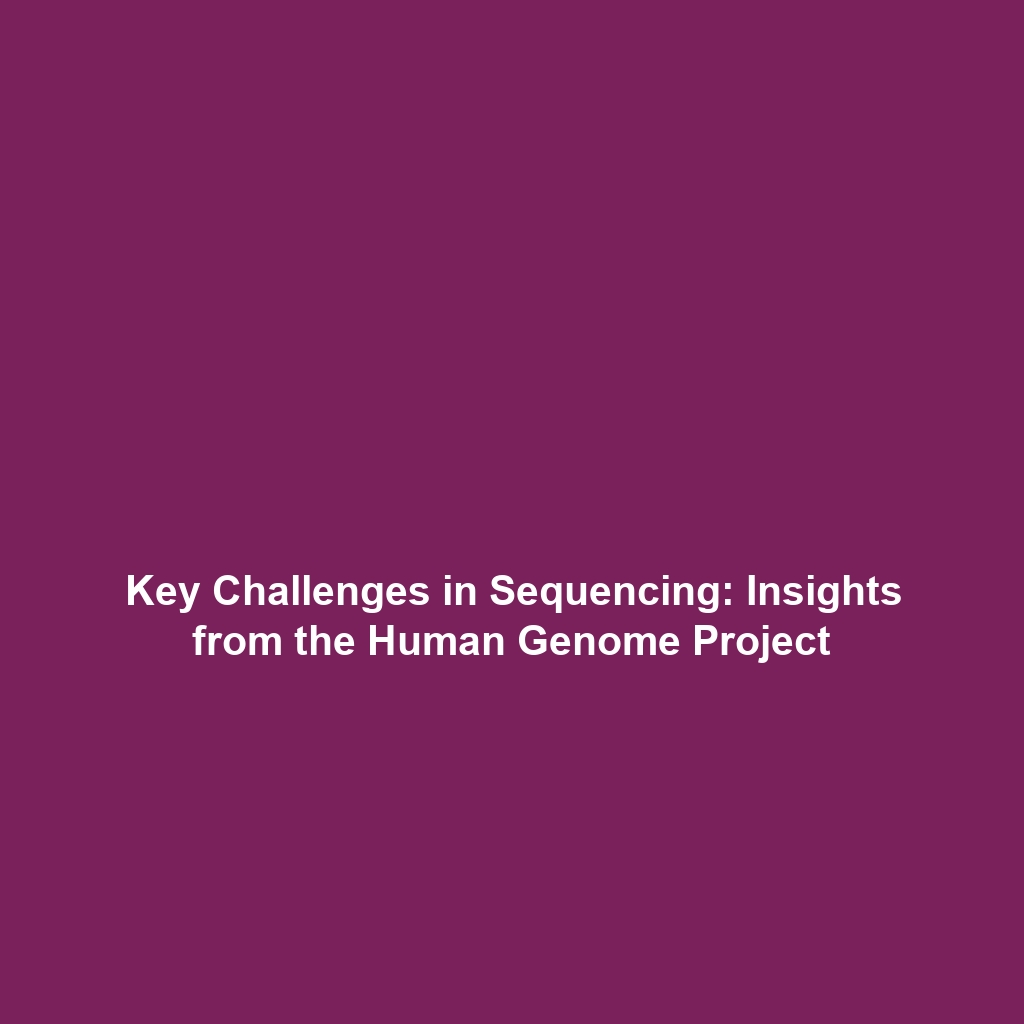Data Storage: Managing, Storing, and Sharing Genetic Data from the Human Genome Project
Introduction
The Human Genome Project (HGP) has generated a monumental amount of genetic data, making effective data storage, management, and sharing essential for modern genomics. The project not only unveiled the sequence of human DNA but also highlighted the challenges that come with managing such extensive datasets. Understanding the significance of data storage is crucial as it underpins all research, application, and advancements stemming from the HGP. Efficient management of this genetic data is vital for ongoing research, clinical applications, and personalized medicine.
Key Concepts
In the realm of the Human Genome Project, there are several fundamental concepts and principles related to data storage:
-
Data Management Systems
Data management systems are required to organize, analyze, and store genetic data efficiently, ensuring accessibility for research and clinical uses.
-
Data Sharing Protocols
Standardized protocols are crucial for sharing data among researchers while maintaining data integrity and privacy.
-
Data Security
Ensuring the security of sensitive genetic information is a top priority, requiring advanced encryption and access controls.
Applications and Real-World Uses
Data storage plays a vital role in various applications directly related to the Human Genome Project, including:
- Personalized Medicine: Leveraging genetic data to tailor treatments based on individual DNA profiles.
- Epidemiological Studies: Using stored genetic information to identify links between genes and disease prevalence.
- Biobanking: Facilitating large-scale biorepositories that store DNA samples and relevant data for future research.
Current Challenges
Despite the advancements, there are significant challenges in managing, storing, and sharing genetic data from the Human Genome Project:
- Data Volume: The sheer amount of data generated is a challenge for storage solutions.
- Integration: Integrating diverse datasets from various sources can be complex.
- Compliance: Adhering to legal and ethical standards when sharing genetic data is critical.
Future Research and Innovations
The future of data storage in genetic research appears promising with upcoming innovations, including:
- Cloud Computing: Enhanced cloud solutions for scalable data storage and accessibility.
- AI and Machine Learning: Leveraging AI technologies to improve data analysis efficiency and accuracy.
- Quantum Computing: Potential breakthroughs in data processing capabilities, accelerating genomic research.
Conclusion
Effective data storage, management, and sharing of the vast genetic data generated by the Human Genome Project are paramount for the future of genomics. As researchers and practitioners continue to navigate both the opportunities and challenges presented by this data, advancing technologies and methodologies will play a crucial role. To learn more about the ongoing initiatives and research stemming from the Human Genome Project, explore our other articles on genomics and data management.

